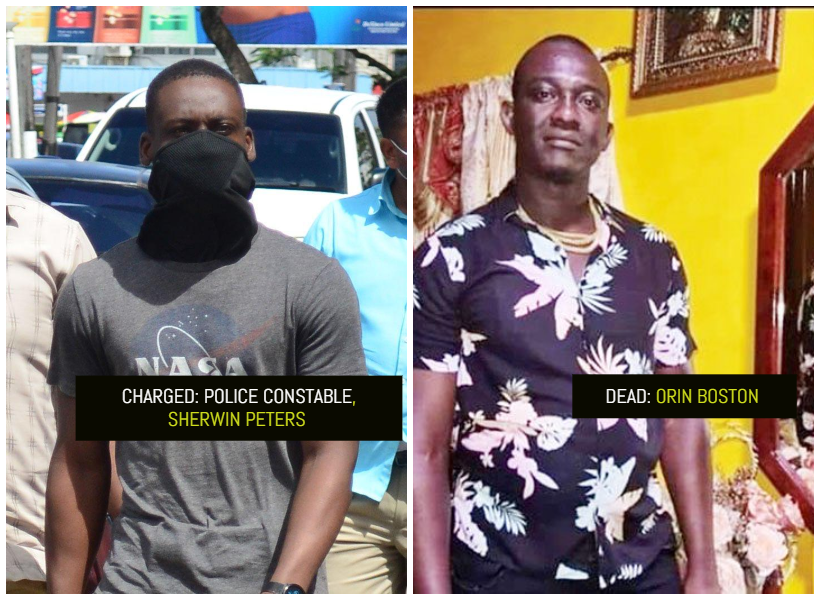Sherwin Peters, the 36-year-old Special Weapons and Tactics (SWAT) officer who killed Essequibo businessman, Orin Boston back in 2021 was sentenced to 25 years in jail today.
Peters, a Police Constable of Lot 1869 Central Amelia’s Ward, Linden was convicted of the lesser offence of manslaughter. He was sentenced by Justice Sandil Kissoon, who remarked that Peters was fortunate to not face a murder charge.
Peters’ trial commenced on June 17, before Justice Kissoon at the Essequibo High Court. The prosecutor called approximately 25 witnesses and on June 25 the jury returned a unanimous guilty verdict.
Boston, 29, of Hoppie Street, Dartmouth, Essequibo Coast, Region Two was shot and killed on September 15, 2021 during what was said to be an anti-crime operation by the SWAT squad. The businessman’s death sparked controversy with accounts of family members differing from the police’s statement about what transpired.
The force said Boston was killed in a confrontation but his wife maintained that her husband was shot while he was in bed and unarmed. He was rushed to the Suddie hospital after the 4 am shooting, where he was pronounced dead on arrival. Following his death, residents mounted protest demonstrations by burning tyres and other debris, blocking the main thoroughfare at Dartmouth.
The court heard that the operation, carried out by 12 heavily armed SWAT officers, targeted two houses within the same compound but was executed without a search warrant, arrest warrant, or any lawful authority. These circumstances drew sharp condemnation from the trial judge.
“The actions of Peters were unlawful, unreasonable, unjustified, disproportionate, and excessive,” Justice Sandil Kissoon said.
He added, “The resort to lethal force was without any basis against an unarmed man asleep in his bed.”
The judge further pointed out that the SWAT unit comprising officers specially trained for high-risk interventions failed in their responsibility to act with caution, restraint, and professionalism. He described their conduct as reckless, stressing that none of the officers had lawful grounds to enter Boston’s home, which Justice Kissoon referred to as the man’s “castle and sanctuary.”
The judge said Peters’ claim that a confrontation had occurred was contradicted by both the testimony of his fellow officers and the findings of the crime scene investigators.
The sentencing hearing included a probation report on Peters, victim impact statements from Boston’s family, a psychiatric evaluation of the convict, as well as submissions on aggravating factors by the prosecution and mitigating factors by the defence.
Notably, during the trial, Peters was unrepresented by counsel, but he appeared at the sentencing hearing with attorney Keoma Griffith. The State was represented by prosecutor Latifah Elliot.
The judge found that there were no mitigating circumstances in the case. While the State prosecutor referenced a lawsuit filed by Boston’s widow against the State for the unlawful killing, noting that compensation had been paid to her. The prosecutor urged the court to consider this as a mitigating factor. However, the judge clarified that while Guyanese law allows compensation to be considered in mitigation, in this instance, the payment was made by taxpayers, which affected his view on its mitigating value.
Notably, Peters also addressed the court during the sentencing hearing.











